Children re-create war scenes in their first art class since fleeing Mosul
Since 17 October thousands of children have been displaced in northern Iraq as a result of military operations to retake the city of Mosul from ISIL.
Two years of life under ISIL has taken a severe toll on many children’s emotional and mental health. World Vision is helping these children learn how to play again.
We are supporting displaced children through our Child Friendly Spaces – safe places where they can find some normality in the chaos and receive emotional support.
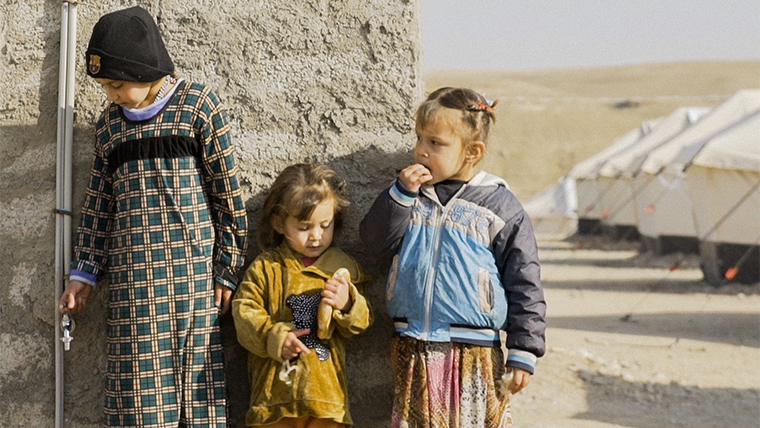
Zelican camp outside Mosul
Zelican camp, 25 kilometres outside of Mosul, is one of northern Iraq’s newest displacement camps. It’s home to a growing number of people fleeing conflict since the operation to retake Mosul began. More than 15,000 children have been displaced since 17 October; some have fled under gunfire, lost family members and witnessed violent events.
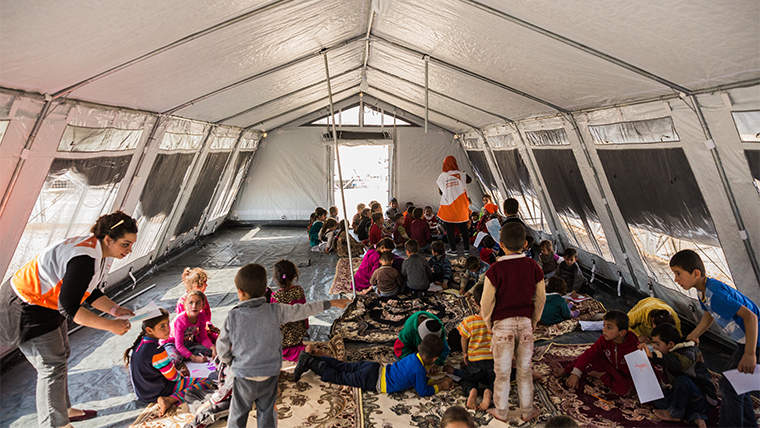
World Vision's Child Friendly Space at Zelican camp
Deep within the camp, skirted by newly constructed tents, World Vision’s Child Friendly Space provides a safe space where children can play games, draw and regain a sense of normality against the chaos.
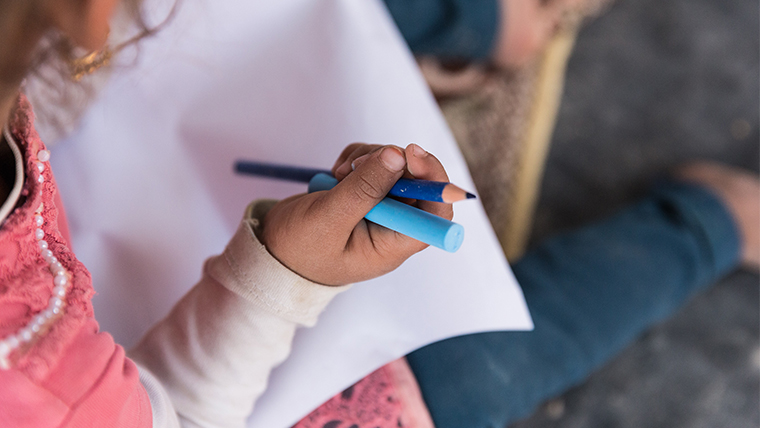
Rema (9) participating in an art class
I didn't know how to draw before. I'd forgotten how.
- Rema, 9
Like many of the children, it was the first time she had used colour pencils in more than two years. Play was not allowed under ISIL, she explains.
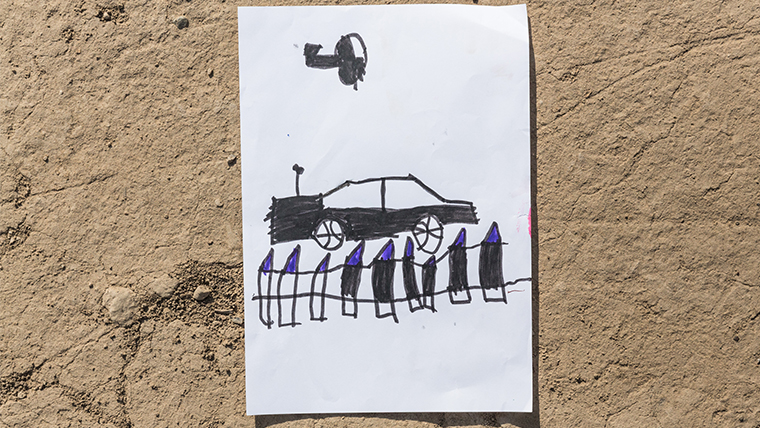
Children drew scenes of war at their first art class at our Child Friendly Space at camp Zelican
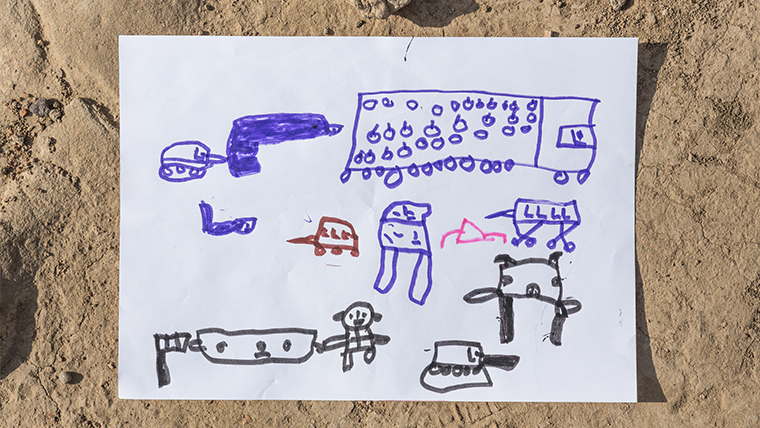
Drawings from children fleeing Mosul
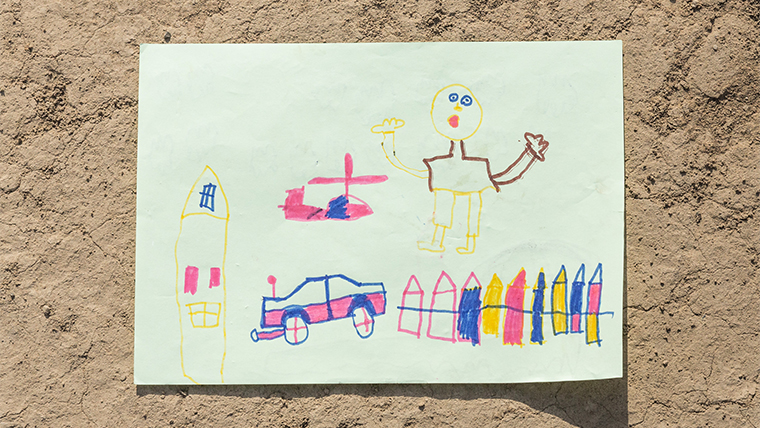
The children were confused when they were invited to draw and paint, says Dejin Jamil, World Vision’s Project Coordinator at the camp. “‘It wasn’t a familiar concept for them. When we gave them paper to draw, they recreated war scenes, drawing tanks and warplanes.”
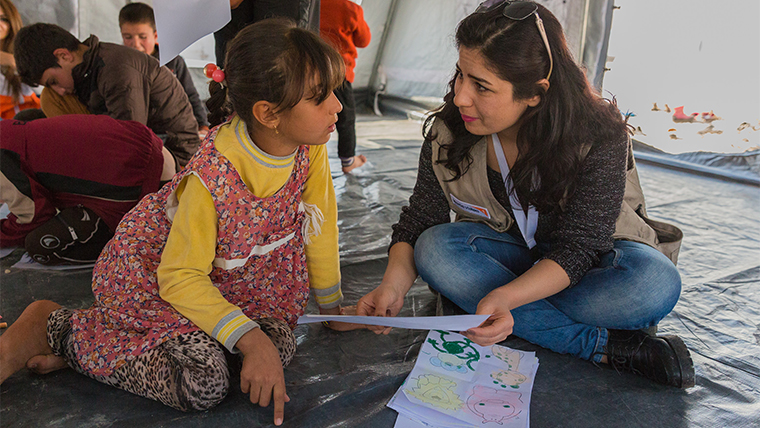
During their first drawing session they used a lot of black, Ms Jamil adds, “You could see that they were still very much living in the past.”
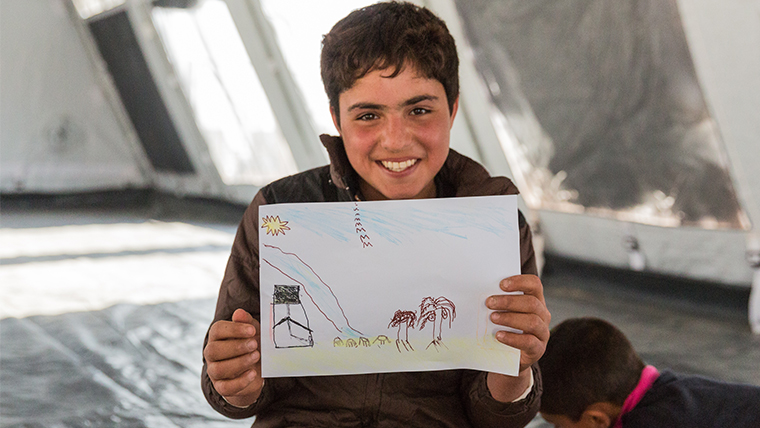
Hamaad, 14, proudly shows his artwork
Hamaad*says, “When I was in the village we used to have sheep, and I was their keeper. ISIL put borders for us not to cross the road. I didn’t know and I crossed the road… They took all my sheep. They beat me with 20 sticks on my back. My father went to them and asked if we can have our sheep back because it’s our only income, but they didn’t give them back. Today I drew a picture of my sheep by a nice stream.”
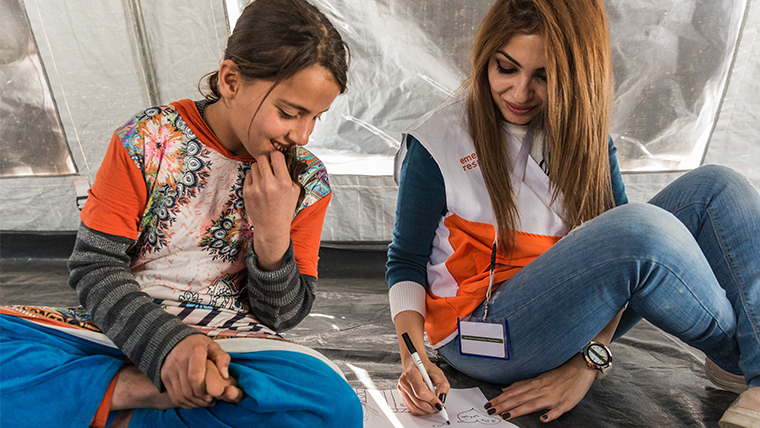
Each day, the children come to the space where activities are run by skilled Child Protection Officers, trained in providing child-based psychological and social support. Little by little, the children have been growing in confidence and becoming more comfortable in expressing themselves through play.
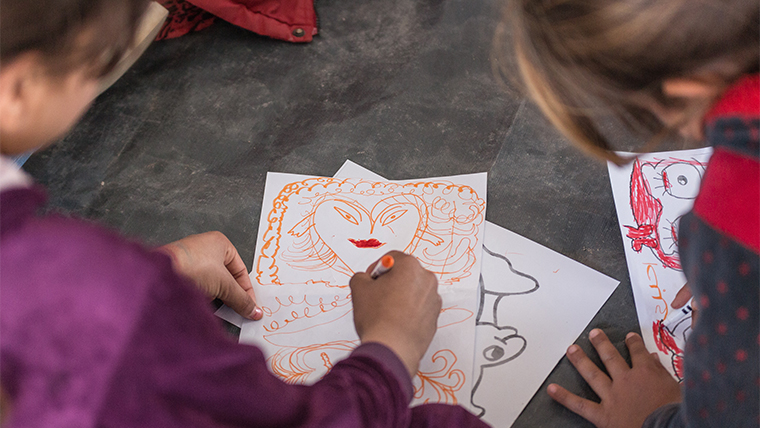
Sarah, 11
I didn’t draw before because there were no colours. The first time I drew again was last Sunday. It made me so happy! So today I have drawn a heart. It’s the hearts of all of us coming together again.
- Sarah, 11
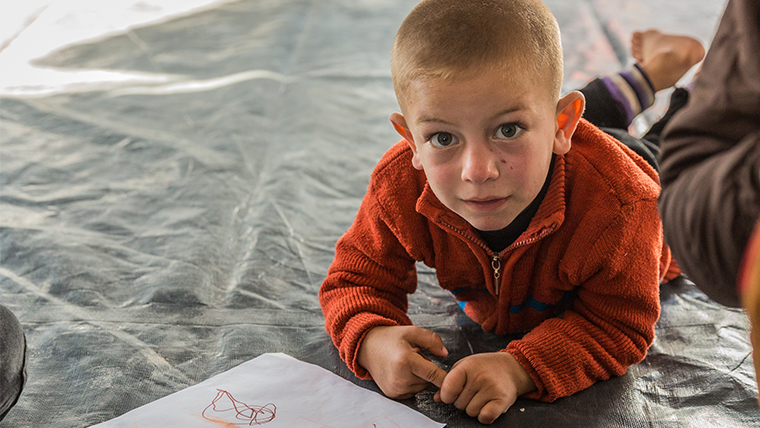
Many of the children arrived at the camp terrified, unable to socialise with other children and scared of adults. In an emergency setting such as this, research has proven that it’s essential for their health and development to feel safe, secure and have the ability to enjoy childhood activities to regain a sense of regularity.
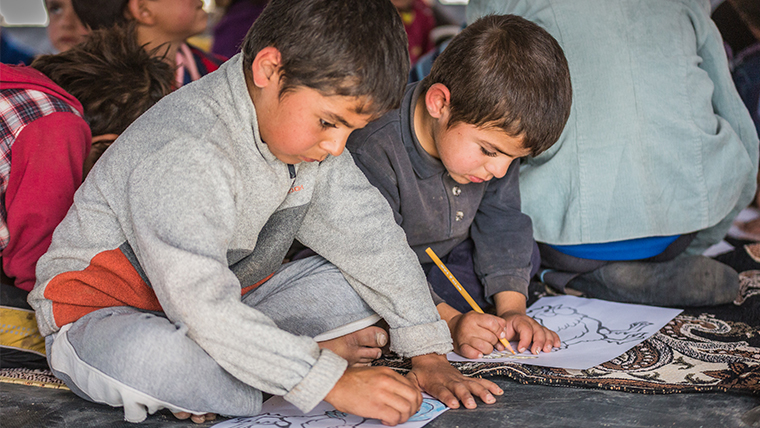
“This is actually the only space where these children can come and feel safe while having fun,” says Ms Jamil, collecting the children’s drawings. “It’s really important to have a space in these camps where they can go to forget what they’ve been through during life under ISIL and learn to be children again.”
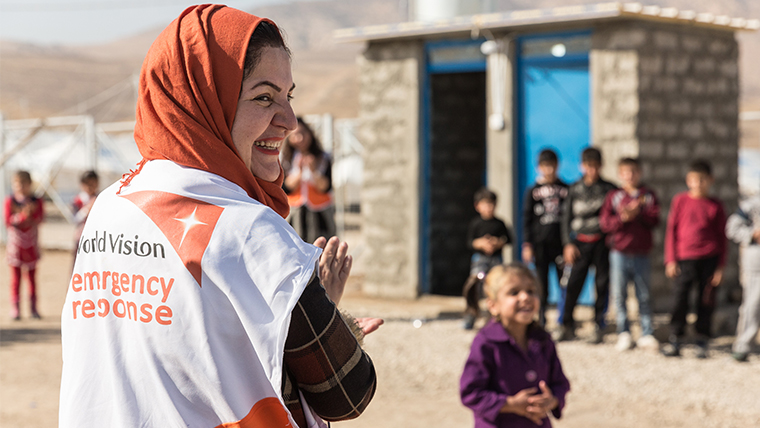
It has been two weeks since the Child Friendly Space opened in Zelican camp and the number of children attending has been swelling daily.
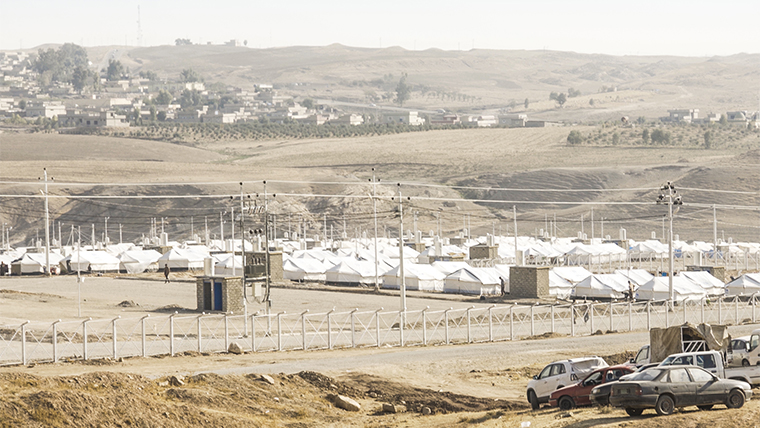
As more families flee the conflict in Mosul, there is an urgent need for child protection across Iraq. It is expected up to 700,000 people could flee Mosul and the surrounding areas in the coming weeks as the conflict continues. Our work will continue to support the displaced families and children. Alongside the Child Friendly Spaces we are providing food, hygiene kits and fresh water.
Find out more about our Syria Crisis response »
*Names have been changed to protect identities.